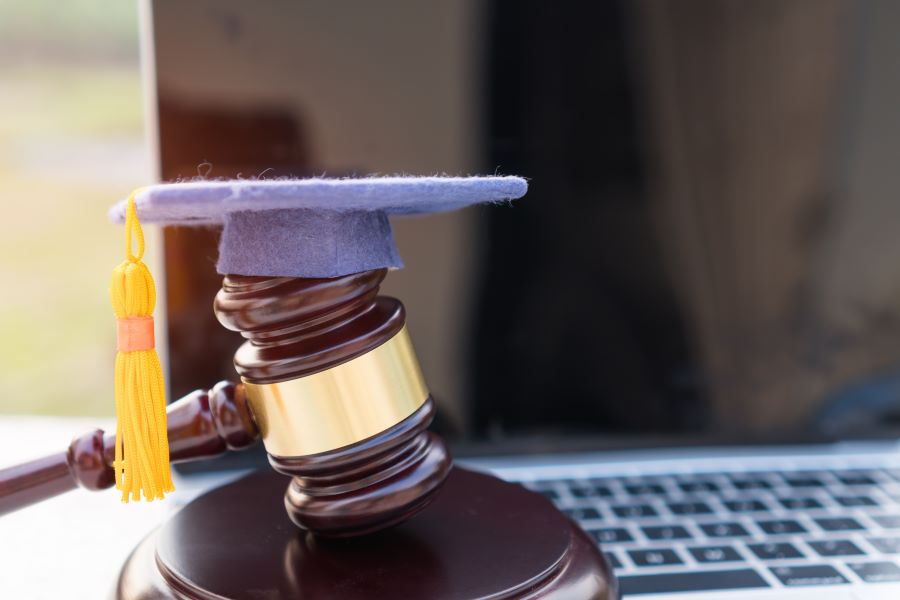Pursuing a Law Degree: Empowering Advocates for Justice and Equality
A law degree opens doors to a diverse and impactful career path, equipping individuals with the knowledge and skills to navigate complex legal systems and advocate for justice. This comprehensive educational journey prepares students to become lawyers, specializing in various areas of law, including civil rights, discrimination, and voting rights. As society continues to grapple with issues of equality and fairness, the role of legal professionals becomes increasingly crucial in shaping a just and equitable world.

How can a law degree prepare you for a career in civil rights?
A law degree equips aspiring civil rights lawyers with the necessary tools to defend and protect individuals’ fundamental rights and freedoms. Through specialized courses and practical experiences, students learn about landmark civil rights cases, constitutional law, and the complexities of discrimination litigation. They develop the skills to analyze complex legal issues, craft persuasive arguments, and navigate the intricacies of the judicial system. Additionally, many law schools offer clinics and internships focused on civil rights, providing hands-on experience in advocating for marginalized communities and addressing systemic inequalities.
What role do lawyers play in addressing discrimination and police misconduct?
Lawyers specializing in discrimination and police misconduct cases play a crucial role in holding institutions and individuals accountable for unjust actions. These legal professionals investigate claims of racial profiling, excessive force, and other forms of discrimination, gathering evidence and building strong cases to seek justice for their clients. They may represent individuals or groups in lawsuits against employers, educational institutions, or law enforcement agencies. Lawyers in this field also work to shape policies and legislation aimed at preventing discrimination and improving police accountability, contributing to broader systemic changes.
How does a law degree contribute to protecting voting rights?
A law degree provides the foundation for lawyers to become champions of voting rights, ensuring that every citizen has equal access to the democratic process. Voting rights lawyers use their legal expertise to challenge discriminatory voting laws, advocate for fair redistricting practices, and protect against voter suppression tactics. They may work on cases involving voter ID laws, polling place accessibility, and the restoration of voting rights for formerly incarcerated individuals. Law school courses in election law, constitutional law, and civil rights prepare students to navigate the complex landscape of voting rights legislation and litigation.
What career opportunities are available for law graduates in civil rights and related fields?
Law graduates interested in civil rights and related areas have diverse career paths available to them. Some may choose to work for nonprofit organizations or legal aid societies, providing pro bono representation to underserved communities. Others may join private law firms specializing in civil rights litigation or discrimination cases. Government agencies, such as the Department of Justice’s Civil Rights Division, also offer opportunities for lawyers to enforce federal civil rights laws. Additionally, some law graduates pursue careers in policy advocacy, working with think tanks or lobbying organizations to influence legislation and promote social justice.
| Career Path | Description | Key Skills Required |
|---|---|---|
| Civil Rights Attorney | Litigates cases involving discrimination, constitutional violations, and civil liberties | Strong analytical skills, persuasive writing, courtroom advocacy |
| Voting Rights Advocate | Works to protect and expand voting access, challenges discriminatory laws | Knowledge of election law, policy analysis, community outreach |
| Police Misconduct Lawyer | Represents victims of police brutality and investigates systemic issues in law enforcement | Investigative skills, negotiation, understanding of criminal procedure |
| Policy Analyst | Researches and develops policies to address civil rights issues and promote equality | Data analysis, legislative knowledge, report writing |
| Legal Aid Attorney | Provides free or low-cost legal services to underserved communities | Client counseling, case management, knowledge of various legal areas |
A law degree focused on civil rights, discrimination, and voting rights equips graduates with the tools to become powerful advocates for justice and equality. Through rigorous academic training and practical experiences, these legal professionals develop the skills to navigate complex legal systems, challenge unjust practices, and work towards creating a more equitable society. Whether representing individuals in discrimination cases, fighting for voting rights, or addressing police misconduct, lawyers in these fields play a vital role in upholding the principles of democracy and ensuring that the law serves as a force for positive change.






